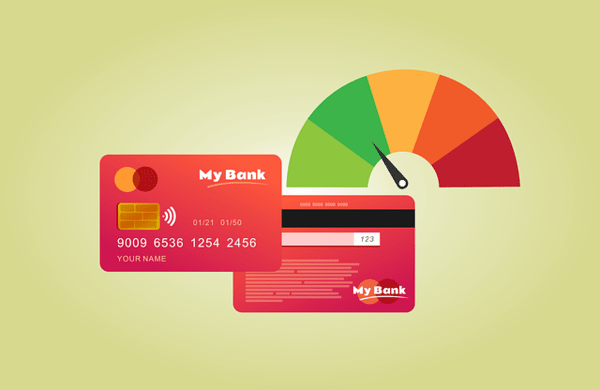When it comes to measuring creditworthiness and overall financial health, your credit score really matters. It refers to a number ranging from 300 to 850 that describes your ability to pay a financial obligation. Although it’s calculated depending on the credit scoring model, an individual’s credit score can be based on several factors, such as repayment history, the number of open financial accounts, and the total amount of outstanding debts.
Hence, if you have a high credit score, the less likely you’ll be treated as a high-risk borrower. However, having bad credit can make your financial life much more complicated. For instance, an article published by CNBC mentioned that about 64% of Americans are worried that their low credit scores will hinder them from achieving their financial goals. That being said, having a good credit score can be essential to ensure financial success.
So, if you’re looking to maintain a top-notch credit score at all times, below are the five benefits of having one:
1. You can have higher chances of loan approval
Typically, banking institutions and other lenders provide eligibility requirements for loan applications. One of these requirements is a good credit score. Although it’s not the only determinative factor for loan approval, many lenders consider credit scores an essential part of their decision. This means that even if it doesn’t assure automatic approval, having an excellent score may improve your chances of getting approved for a loan.
However, if you have a poor credit history, lenders may turn down your application for being a high-risk borrower. In that case, you may need to improve your credit score first before filling out a loan application form. That way, you can take out a loan with confidence.
On the other hand, if you’re looking for ways to raise your credit score, you may check out some resource websites and continue reading more information to know what steps to take to get a desirable outcome.
2. You can avail of better interest rates
Aside from higher chances of loan approval, having a good credit score may also allow you to avail yourself of better interest rates. According to Investopedia, an interest rate refers to a percentage of the principal loan that a lender charges a borrower for borrowing money. It’s usually determined by several factors, including some economic and political factors. But apart from them, lenders also determine the number of interest rates based on the borrower’s credit rating.
Therefore, if you have a good credit score, your lender will more likely charge you lower interest rates, making your loan repayments more manageable. However, if you have bad credit, you’ll more likely receive higher interest rates for your loan. When this happens, you may find your loan expensive to pay.
3. You can pay less for your insurance premiums
Like banking institutions and lenders, insurance companies also check applicant’s credit score before deciding to offer you their insurance services. They usually use the information from your credit report to determine your insurance credit risk score.
So, if you have a poor credit score, they may approve your insurance application but charge you higher insurance premiums. This means you’ll have to pay more money for your insurance coverage. However, paying for insurance premiums won’t be a problem if you have a high credit score because you’ll pay less within a certain period.
4. You can be allowed to borrow more money
Typically, your ability to borrow is determined by your credit score. Many lenders review your credit rating to determine the amount of money they can borrow. Hence, if you have a good credit score, your lender may be willing to offer you a higher credit limit for your loan. As a result, you’ll not be limited to the amount of money you can obtain from lenders, especially in times of financial emergency.
5. You can get hired easily
It’s important to know that some job positions require a credit score review before hiring an applicant. This is especially true if the job involves managing money and other company finances. For instance, a 2016 CareerBuilder Survey mentioned that 29% of employers use credit score to know whether they should consider candidates for the job. This is because, through a credit check, prospective employers can ensure that the person to be hired can be trusted to handle the financial accounts of the money without any problems.
Thus, you may have a better chance of getting hired quickly if you have a good credit score. But if you have bad credit, you may not be qualified for specific job positions as you may be viewed as a risky hire.
Conclusion on Good Credit Score
Maintaining a good credit score is indeed essential as it usually impacts certain financial decisions. With a healthy credit rating, you can create many financial opportunities and save more money in the long run. But if you have a low credit score, it’s best to improve your rating first so you can get the most out of the benefits of a good credit score mentioned above.


